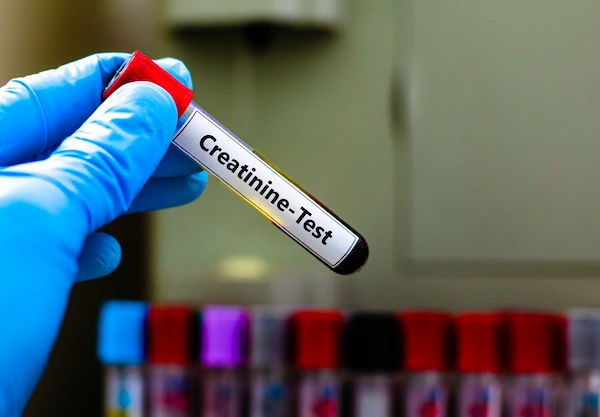Dysentery Overview: Symptoms, Causes, and Treatment
Discover the key differences between dysentery and regular diarrhea. Learn about the symptoms, causes such as bacterial or parasitic infections and effective treatment options for quick recovery.


Dysentery is a common digestive disorder that causes inflammation of the intestines, leading to severe diarrhea, often with blood or mucus. While it can be uncomfortable and distressing, understanding its symptoms, causes, and treatment options can help you manage the condition effectively.
What is Dysentery?
Dysentery is an intestinal infection that results in frequent, loose, and bloody stools accompanied by stomach cramps and fever. It is mainly caused by bacteria (like Shigella or E. coli) or parasites (such as Entamoeba histolytica). The infection spreads through contaminated food, water, or poor hygiene.
Consult a Top Specialist
Symptoms of Dysentery
The most common signs of dysentery include:
- Frequent, watery diarrhea (sometimes with blood or mucus)
- Severe stomach cramps
- Nausea and vomiting
- Fever and chills
- Dehydration (dry mouth, dizziness, fatigue)
- Loss of appetite
If symptoms persist for more than a few days or worsen, medical attention is necessary to prevent complications like severe dehydration or kidney issues.
Causes of Dysentery
Dysentery spreads through:
- Contaminated Food & Water – Consuming undercooked food, unwashed vegetables, or untreated water can introduce harmful bacteria or parasites.
- Poor Hygiene – Not washing hands after using the toilet or before eating can lead to infection.
- Person-to-Person Contact – Close contact with an infected person can spread the disease.
- Travel to High-Risk Areas – Visiting regions with poor sanitation increases the risk.
How Dysentery Affects Health
If left untreated, dysentery can lead to:
- Severe dehydration (dangerous for children and older adults)
- Kidney failure (due to excessive fluid loss)
- Malnutrition (from poor nutrient absorption)
- Chronic digestive issues (in rare cases)
Treatment for Dysentery
Below are a few ways of treating dysentery,
1. Medical Treatment
- Antibiotics (for bacterial dysentery)
- Antiparasitic medications (for amoebic dysentery)
- Oral rehydration solutions (ORS) to restore lost fluids
2. Home Care & Lifestyle Tips
- Stay Hydrated – Drink plenty of fluids (water, coconut water, ORS).
- Eat Light & Easy-to-Digest Foods – Bananas, rice, applesauce, and toast (BRAT diet) help.
- Avoid Dairy, Spicy & Fatty Foods – These can worsen diarrhea.
- Maintain Hygiene – Wash hands frequently with soap.
- Rest Well – Allow your body to recover.
When to See a Doctor?
Seek medical help if you experience:
- Blood or pus in stools
- High fever (above 101°F or 38.3°C)
- Signs of dehydration (extreme thirst, dizziness, low urine output)
- Symptoms lasting more than 3 days
Preventing Dysentery
Below are the ways to prevent dysentery,
- Drink Clean Water – Boil or filter water if unsure of its purity.
- Wash Hands Regularly – Especially before eating and after using the toilet.
- Eat Well-Cooked Food – Avoid raw or street food in unhygienic conditions.
- Vaccination (if applicable) – Some vaccines protect against certain dysentery-causing bacteria.
Need Help? Consult a Doctor Today
If you or a loved one is suffering from persistent diarrhea, stomach pain, or dehydration, it’s best to seek medical advice. Apollo 24|7 offers expert consultations and lab tests to diagnose and treat dysentery effectively. Book a doctor’s appointment now or order an at-home lab test for quick and reliable results.
Final Thoughts
Dysentery is a serious intestinal condition that requires prompt attention, especially when accompanied by symptoms like severe diarrhea, abdominal pain, and blood in the stool. Understanding its causes whether bacterial or parasitic can aid in effective treatment and prevention.
Consult a Top Specialist
Consult a Top Specialist

Dr. Anand Ravi
General Physician
2 Years • MBBS
Bengaluru
PRESTIGE SHANTHINIKETAN - SOCIETY CLINIC, Bengaluru

Dr. Vivek D
General Physician
4 Years • MBBS
Bengaluru
PRESTIGE SHANTHINIKETAN - SOCIETY CLINIC, Bengaluru

Dr Syed Mateen Pasha
General Physician
2 Years • MBBS
Bengaluru
PRESTIGE SHANTHINIKETAN - SOCIETY CLINIC, Bengaluru

Dr Aakash Andgi
General Physician/ Internal Medicine Specialist
9 Years • MBBS MD
Bengaluru
Apollo Clinic, JP nagar, Bengaluru

Dr. Syed Ismail Ali
General Practitioner
7 Years • MBBS
Hyderabad
Apollo 24|7 Clinic, Hyderabad
Consult a Top Specialist

Dr. Anand Ravi
General Physician
2 Years • MBBS
Bengaluru
PRESTIGE SHANTHINIKETAN - SOCIETY CLINIC, Bengaluru

Dr. Vivek D
General Physician
4 Years • MBBS
Bengaluru
PRESTIGE SHANTHINIKETAN - SOCIETY CLINIC, Bengaluru

Dr Syed Mateen Pasha
General Physician
2 Years • MBBS
Bengaluru
PRESTIGE SHANTHINIKETAN - SOCIETY CLINIC, Bengaluru

Dr Aakash Andgi
General Physician/ Internal Medicine Specialist
9 Years • MBBS MD
Bengaluru
Apollo Clinic, JP nagar, Bengaluru

Dr. Syed Ismail Ali
General Practitioner
7 Years • MBBS
Hyderabad
Apollo 24|7 Clinic, Hyderabad




